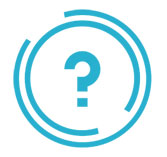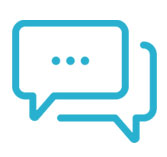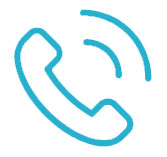Product Description
Kids Knee Brace for Osgood Schlatter Disease
One of the many unpleasant and uncomfortable things children can experience during puberty is the formation of a painful bony bump below their kneecap due to a growth spurt. This is especially prevalent among athletic boys and girls that participate in activities or youth sports that involve running, jumping, and bending, such as track, soccer, basketball, volleyball, and ballet.
What is Osgood Schlatter Disease?
During a growth spurt, a child's thigh muscles (quadriceps) pull on the patellar tendon, which connects the kneecap to the growth plate at the top part of the shinbone (tibia). This repeated tension and irritation can cause the tendon to pull away from the shinbone, resulting in pain, swelling, inflammation, and occasionally the formation of a bony lump under the patella. When this occurs, it is known as Osgood Schlatter disease.

Most Common Osgood Schlatter Disease Symptoms:
- Knee or leg pain
- Swelling, tenderness, or increased warmth below the knee
- Pain that worsens with exercise or high-impact activities, like running
- Limping after physical activity
The severity of these symptoms often varies from child to child. Some kids experience only mild pain during certain activities that eases with rest. Others experience constant, severe, and debilitating pain that makes it difficult to do any physical activity. The condition usually occurs in just one knee, but it can affect both knees.
How Long Does Osgood Schlatters Last?
Often referred to as the growing pains of the knees, pain associated with Osgood Schlatter disease typically goes away once the adolescent stops growing. Without treatment, some kids are left with a permanent bump below their kneecap. In rare circumstances, adults may continue to experience painful Osgood Schlatter symptoms caused by residual bone fragments around the patellar tendon.
Need a larger size? Check out our adult knee strap.
Why Use This Patella Tendon Knee Strap for Osgood Schlatter Treatment?
Worn around the leg just below the kneecap, this patellar band for Osgood Schlatter can help stabilize the knee and "tack down" a child’s patellar tendon during activities, distributing force away from the shinbone.
In addition to Osgood Schlatter disease, this extra-small compression strap can also be used to reduce pain and inflammation caused by a variety of conditions and injuries affecting the patella, including:
- Patellar tendonitis
- Tibial tuberosity
- Patellofemoral pain syndrome
- Chondromalacia
- Runner's knee
- Jumper’s knee
To cure and treat Osgood Schlatter disease, we always recommend consulting with a medical professional. A doctor will likely advise a child to ice their knee at home and stretch their muscles before and after participating in sports, in addition to wearing this patella strap. For specific Osgood Schlatter exercises and stretches, check out the video below.
5 Features and Benefits of This Patella Strap
-
Reusable Knee Ring, Unlike Osgood Schlatters Taping
During the years of rapid growth, KT (Kinesio) tape can help relieve the symptoms of Osgood Schlatter disease. Unfortunately, this medical tape is hard to keep clean and can start peeling off within a couple of hours. Our patellar resistance band provides secure and reusable knee pain relief and protection without adhesive, eliminating the need for taping. Combine icing after activity and small bouts of rest to further relieve a child’s symptoms.
-
Low-Profile, Lightweight, and Nonrestrictive Fit
This 2-inch tall patella tendon stabilizer is extremely low-profile and nonrestrictive, allowing for a full range of motion, so little kids and teenagers are more likely to actually wear it! Unlike applying a medical bandage or tape, a child can easily adjust the fit themselves by simply tightening or loosening this pediatric knee band.
-
Tubular Knee Pad
The rubberized, tubular padding applies uniform compression over a child’s patellar tendon, relieving stress on the tendon and its attachment at the growth plate (tibial tuberosity) on the tibia (shinbone). This helps spread pressure across a larger area to alleviate pain while hiking, walking, running, jumping, or playing youth sports.
-
Non-Slip Interior and Medical-Grade Fasteners
A textured, non-slip interior and medical-grade fasteners hold the wrap-around band securely in place to prevent slipping or rolling during school, athletic activities, and more.
-
Provides Therapeutic Warmth
The neoprene material applies soothing heat to increase circulation and heal sore or aching muscles. Plus, the flexible fabric and lightweight fit make it easy for a child to move about and engage activities as normal while wearing this comfortable knee support
Frequently Asked Questions About This Osgood Schlatter Band
- Who can wear it? Available in sizes XS - Medium, fitting a wide variety of youth to teenagers.
- How do I know what size to get? Using a soft, fabric tape measure, find the circumference around the leg directly under the kneecap. Refer to our sizing graphic to choose the correct size.
- What conditions does this knee brace treat? In addition to Osgood Schlatter disease, this compression strap can also be used to reduce pain and inflammation caused by patellar tendonitis, chondromalacia, patellofemoral pain syndrome, runner’s knee, and jumper’s knee. This type of brace can also relieve discomfort caused by shin splints.
- How do I put it on? Undo the fastener strap. Position the rubberized, tubular compression pad against the skin directly under the kneecap. Thread the fastener strap through the D-ring, pulling the strap to tighten and secure. Loosen or tighten the strap to adjust the amount of compression provided.
- Can this band be worn over pants? Yes, but this knee brace is meant to fit against the skin for a better grip. It can be worn above tight pants or leggings if necessary.
- Can it be worn on the right or left leg? Yes, this knee protector can be worn on either leg.
- How tall is this patella splint? 2 inches tall.
- What material is this brace made of? Latex-free, premium-grade soft loop neoprene.
- When should it be worn? For best results, wear during physical activities that include running or jumping. We recommend speaking with your doctor for further guidance.
- Washing Instructions: Close fasteners and hand wash in warm water with mild soap. Lay it flat to air dry completely before reapplying.
- Other features:
- Available in a range of sizes for the perfect fit.
- Textured backing prevents this brace from slipping down the leg.
- Can be worn interchangeably on the right or left leg.
- Natural, at-home remedy for Osgood Schlatter disease
- Color: Black





























